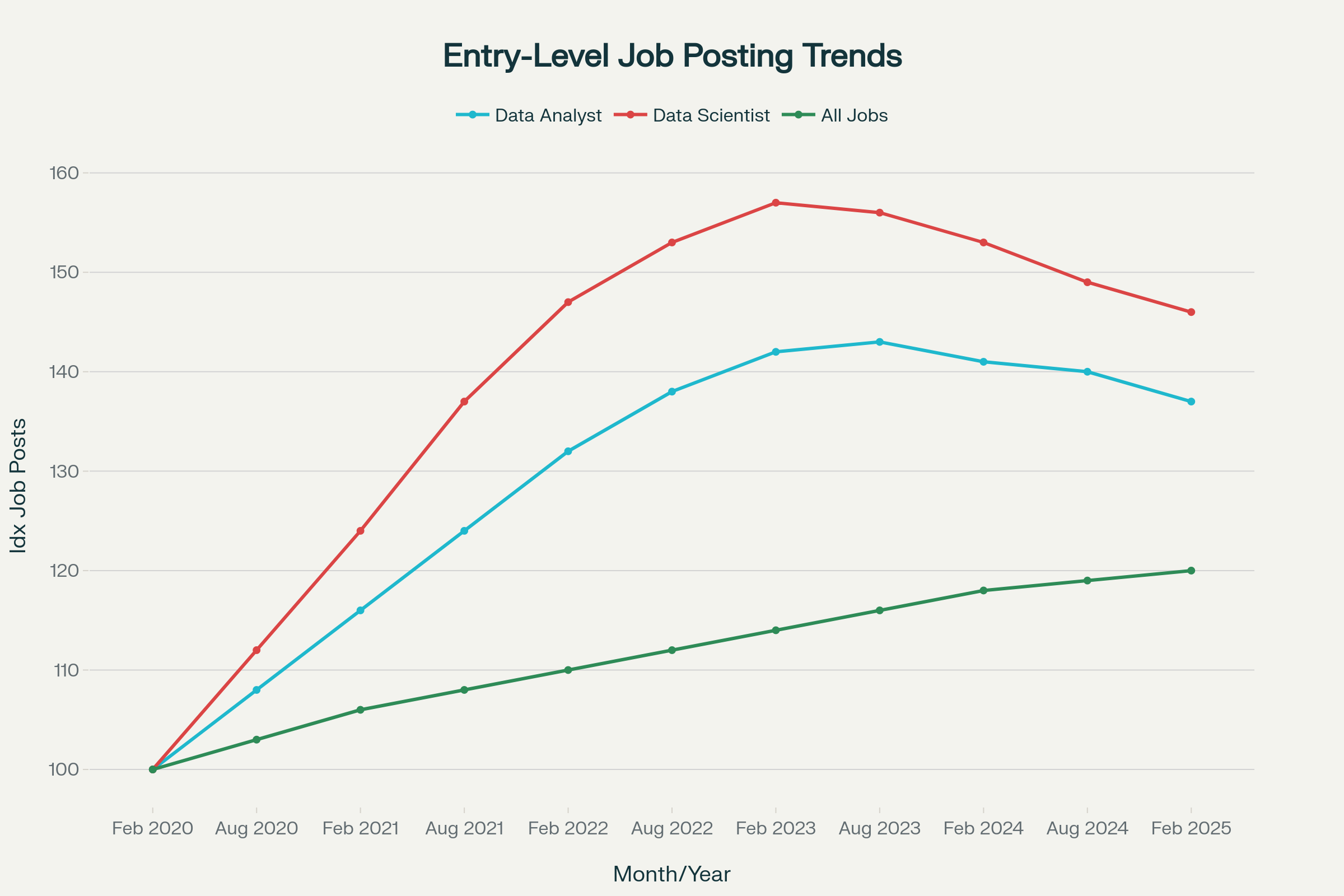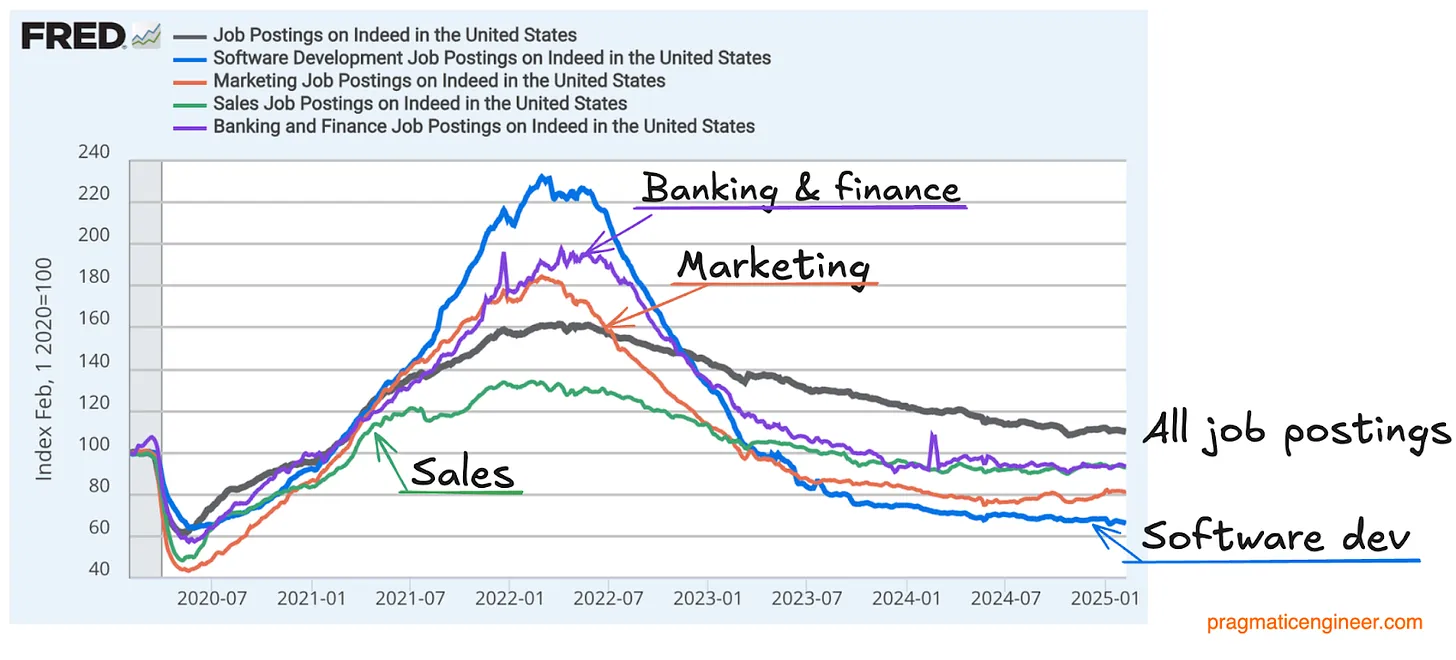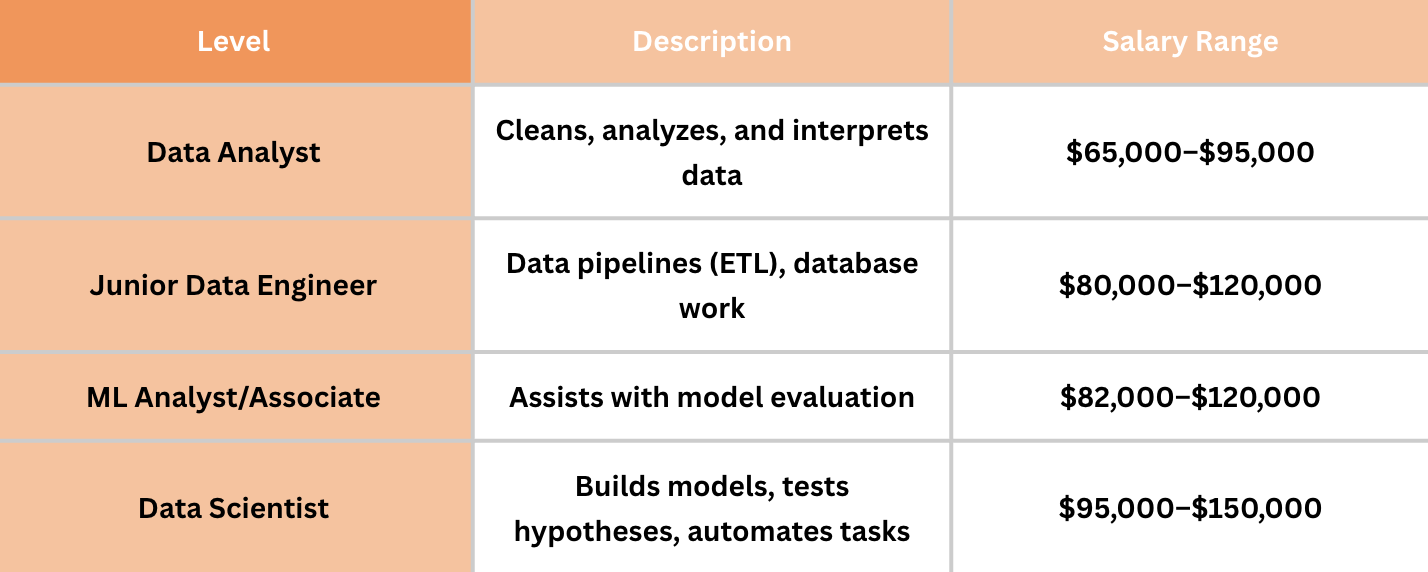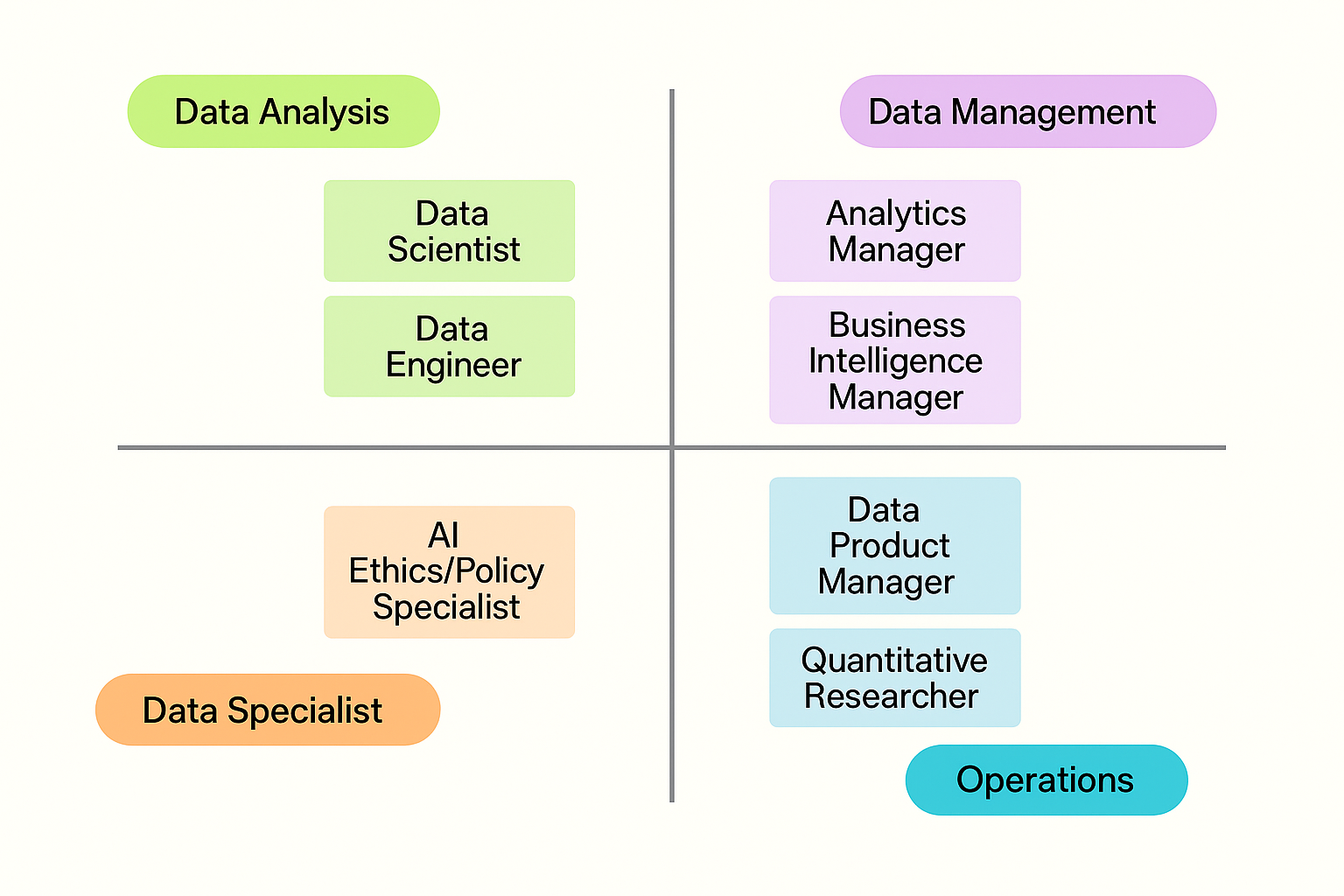Entry Level Job Market Report
Data Analyst/Data Scientist
Overall Rating
High
Competition
Very High
Avg Entry Salary
$95k (USD)
Job Satisfaction
3.5/5
Growth Potential
Very High
About
Data Analysts/Scientists collect, clean, analyze, and interpret structured and unstructured data to generate actionable business insights, build predictive models, and communicate findings to stakeholders.
Overall Rating
High
Data analyst/scientist jobs remain highly desirable due to increasing data ubiquity across industries, but competition is intense and qualification requirements have increased. Employers expect strong statistical, technical, and business communication skills, and often hands-on portfolio work or internships, even for junior positions.
Competition
Very High
Entry-level data analyst/data scientist job openings are highly competitive for several reasons:
Experience Expectations and Tooling: Most "entry" roles now demand prior internships, advanced coursework, or demonstrable project portfolios, and familiarity with the latest analytical and visualization tools. Simple reporting tasks are often automated, so companies seek candidates who can independently create valuable business insights or automate analyses.
AI & Automation: Advances in AI and analytics tooling are automating portions of the data pipeline - extraction, cleansing, even initial modeling - shifting expectations so that new hires must bring added value in business problem framing and advanced analysis.
Talent Supply & Degree Surge: A wave of new graduates and bootcamp-trained professionals has created an oversupply of candidates relative to entry-level openings, intensifying selection for junior roles.
Remote Work Expanding Talent Pools: Remote and hybrid options enable national, even international, competition for each job, raising the required skill threshold.
Experience Expectations and Tooling: Most "entry" roles now demand prior internships, advanced coursework, or demonstrable project portfolios, and familiarity with the latest analytical and visualization tools. Simple reporting tasks are often automated, so companies seek candidates who can independently create valuable business insights or automate analyses.
AI & Automation: Advances in AI and analytics tooling are automating portions of the data pipeline - extraction, cleansing, even initial modeling - shifting expectations so that new hires must bring added value in business problem framing and advanced analysis.
Talent Supply & Degree Surge: A wave of new graduates and bootcamp-trained professionals has created an oversupply of candidates relative to entry-level openings, intensifying selection for junior roles.
Remote Work Expanding Talent Pools: Remote and hybrid options enable national, even international, competition for each job, raising the required skill threshold.


+36%
+46%
Increase in data analyst and data scientist roles between 2020-2025
FRED: Federal Reserve Economic Data

+10%
Change in the overall number of job listings 2020-2025
All jobs: +10%
Banking and finance: -7%
Sales: -8%
Marketing: -19%
Software development: -34%
Salary
$95K (USD)
Typical entry-level data analyst salaries range from $65,000–$95,000, while entry-level data scientists earn between $95,000–$150,000, with the top 10% earning around 165k. Entry-level salaries are highest in San Francisco, New York, and Seattle (avg: 109k)
Best US Cities for Data Analysts/Scientists (2025): San Francisco, New York, Seattle, Boston, Chicago. New York and California have the most job openings and the most rapid growth in openings.
Top Employers
Tech leaders: Google, Meta, Microsoft, Amazon, Apple
Finance/Consulting: JPMorgan Chase, Goldman Sachs, Deloitte, Accenture
Other large employers: IBM, Oracle, Tesla, Walmart, UnitedHealth, CVS Health, United States government agencies
Best US Cities for Data Analysts/Scientists (2025): San Francisco, New York, Seattle, Boston, Chicago. New York and California have the most job openings and the most rapid growth in openings.
Top Employers
Tech leaders: Google, Meta, Microsoft, Amazon, Apple
Finance/Consulting: JPMorgan Chase, Goldman Sachs, Deloitte, Accenture
Other large employers: IBM, Oracle, Tesla, Walmart, UnitedHealth, CVS Health, United States government agencies

Job Satisfaction
3.5/5
Average happiness: 3.5 out of 5 stars. Entry-level data analysts/scientists enjoy high satisfaction due to pay, intellectual challenge, and career mobility, but frustrations exist around repetitive data cleaning, market saturation, and a perceived lack of creative impact early in the career.
Career Potential: Entry-level data professionals can advance to senior analyst/scientist/engineer, or pivot to data engineering, product analytics, AI/ML research, data product management, MLOps, or technical leadership.
What are potential career paths for data analysts/scientists?
Career Potential: Entry-level data professionals can advance to senior analyst/scientist/engineer, or pivot to data engineering, product analytics, AI/ML research, data product management, MLOps, or technical leadership.
What are potential career paths for data analysts/scientists?

Growth Potential
Very High
AI isn’t replacing data professionals, but is transforming the work:
- Routine reporting and data wrangling are increasingly automated, so early-career roles focus on cross-team communication, problem scoping, and advanced modeling.
- Human judgment, storytelling, and ethical analysis are critical in data products and AI deployments.
- Data professionals who embrace new tools and learn fast, especially in AI/ML tooling and domain knowledge, will future-proof their careers.
Data analytics/science continues to be fast-growing and lucrative, but “doorway” jobs are fewer, expectations are higher, and competition is global in 2025. Portfolios, specialized skills (like GenAI, ML ops, industry domain knowledge), and geographic flexibility maximize opportunity. Major tech and finance hubs still lead, but emerging states and remote roles are on the rise. AI is a complement, not a replacement: human insight, business context, and creative thinking are more valuable than ever for entry-level success.
- Routine reporting and data wrangling are increasingly automated, so early-career roles focus on cross-team communication, problem scoping, and advanced modeling.
- Human judgment, storytelling, and ethical analysis are critical in data products and AI deployments.
- Data professionals who embrace new tools and learn fast, especially in AI/ML tooling and domain knowledge, will future-proof their careers.
Data analytics/science continues to be fast-growing and lucrative, but “doorway” jobs are fewer, expectations are higher, and competition is global in 2025. Portfolios, specialized skills (like GenAI, ML ops, industry domain knowledge), and geographic flexibility maximize opportunity. Major tech and finance hubs still lead, but emerging states and remote roles are on the rise. AI is a complement, not a replacement: human insight, business context, and creative thinking are more valuable than ever for entry-level success.




